English Edition

- By CNI
- Category: English Section
- Hits: 229
CNI News
27 December 2025
Election observation teams from Russia, China, and India arrived in Yangon on December 26, 2025, to monitor the upcoming general elections in Myanmar.
Phase (1) of the Myanmar general election is scheduled to be held on December 28, 2025, across 102 townships.
The following high-level representatives and their teams arrived to observe the proceedings:
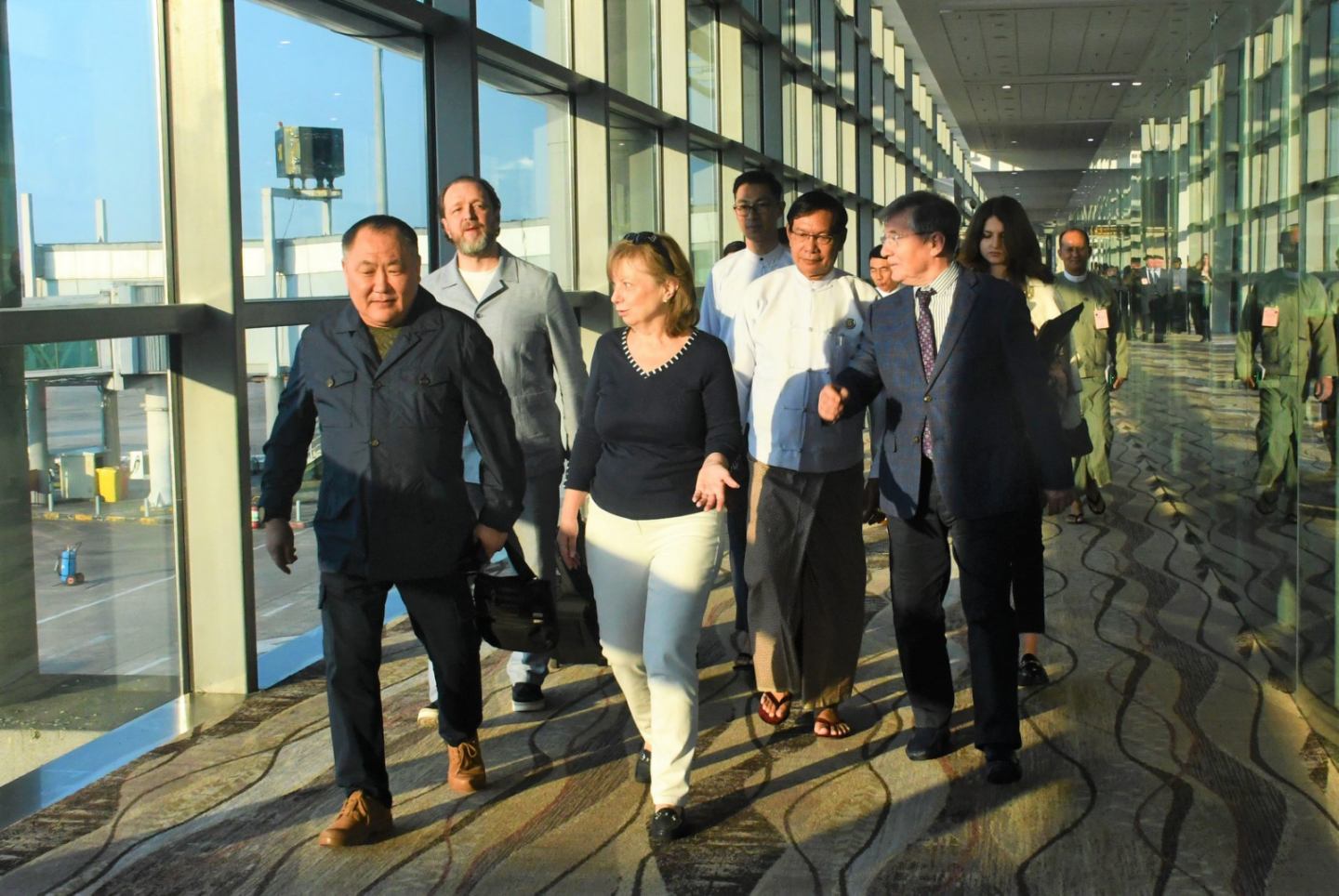
Russia: Mr. Kara-ool Sholban, Deputy Chairman of the State Duma. China: Mr. Deng Xijun, Special Envoy. India: Mr. Sahni Arun Kumar, Former Army Commander. Kazakhstan: Mr. Yerman Mukhtar, Deputy Chairman of the Commission. Cambodia: H.E. Mr. YICH Samethy, Member of the National Election Committee (NEC). Vietnam: Mr. Nguyen Duc Thinh.

- By CNI
- Category: English Section
- Hits: 273
CNI News
27 December 2025
Colonel Khun Okkar, Chairman of the Pa-O National Liberation Organization (PNLO-NCA/S), a signatory of the Nationwide Ceasefire Agreement (NCA), told CNI News that the formation of the Spring Revolution Alliance (SRA) appears to be focused solely on military cooperation, lacking political collaboration.
From November 21 to 23, 2025, a three-day "Spring Alliance Formation Convention" was held, where the SRA was established with 19 member organizations.
Colonel Khun Okkar noted that political principles play a crucial role in forming an alliance. He stated that the current Spring Alliance seems to be a military-only cooperation, which could potentially weaken its position.
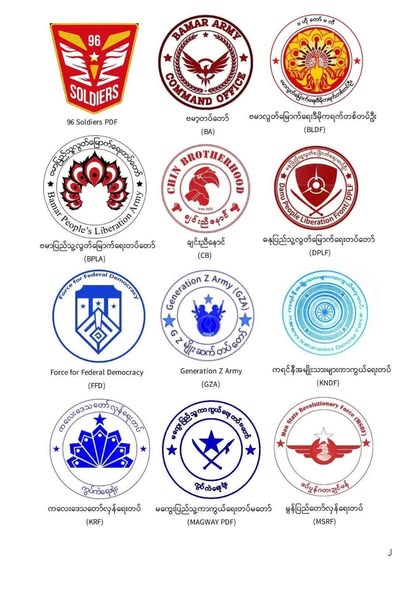
Members of the Spring Revolution Alliance seen
He explained:"In forming an alliance, political principles—a Common Ground—are essential. I believe the Common Ground must be solid. Only when the Common Ground and political principles are strong will the unification be effective and 'alive.' What I've heard is that the Spring Revolution Alliance lacks a political Common Ground. It sounds like they will only coordinate on military actions and cooperate only on the military front. I think that is a bit weak because politics is very fundamental. Furthermore, organizations with a Political Mandate need to be involved substantially. By holding a Political Mandate, the organization gains Legitimacy. Otherwise, managing divisions and fulfilling requirements—especially logistics—becomes difficult. If groups just gather without preparing logistics, from food to arms and ammunition, the formation might only exist on paper. To reach an effective level, a more compact, practical, and feasible formation would be better."
On the other hand, Dr. Hla Kyaw Zaw, an analyst of China-Myanmar affairs, told CNI News that the purpose of forming the Spring Revolution Alliance is to attack the military strategically and collectively, rather than operating as separate individual groups.
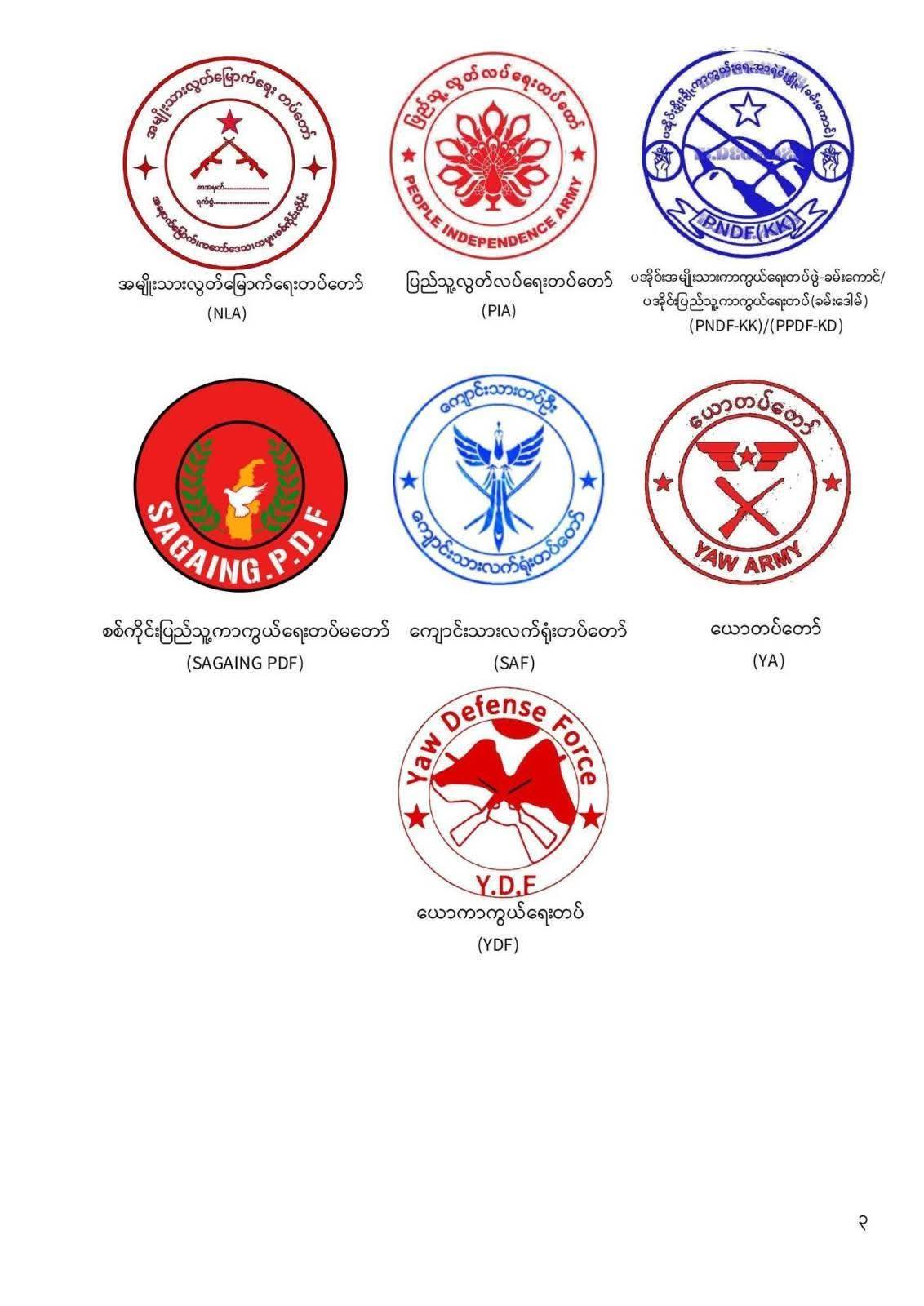
Members of the Spring Revolution Alliance seen
She said:"These groups were scattered. When they are scattered, it’s difficult. I’ve heard comrades say it’s like 'each village has its own style.' If they are organized, they will become a disciplined army. Additionally, instead of attacking the military junta as individual groups in separate locations, they aim to fight strategically and collectively. I think that is their goal, and it is a good thing. When many people come together, there will be diverse views and certainly more conflicts. However, through those conflicts, they will learn the art of negotiation and compromise. In this way, strategies, methods, and positions targeted specifically at the military junta will emerge. I personally like this move."
The 19 member organizations of the Spring Revolution Alliance (SRA) are: Kalay Revolutionary Force (KRF)၊ Karenni Nationalities Defence Force (KNDF)၊ Chin Brotherhood (CB)၊ Sagaing People’s Defense Army (Sagaing PDF)၊ Bamar People’s Liberation Army (BPLA)၊ Bamar Army (BA)၊ 96 Soldiers PDF၊ Bamar Liberation Democratic Front (BLDF)၊
Danu People's Liberation Army (DPLF)၊ Force for Federal Democracy (FFD)၊ Generation Z Army (GZA)၊ Magway People's Defense Army (Magway PDF)၊ Mon State Revolutionary Force (MSRF)၊ National Liberation Army (NLA)၊ People's Liberation Army (PLA)၊ Pa-O National Defence Force (Kham Kaung) / Pa-O People's Defence Force (Kham Daung)၊ Student Armed Force (SAF)၊ Yaw Army (YA)၊ Yaw Defense Force (YDF).
These 19 groups are currently engaged in an armed struggle to overthrow the Myanmar military(Tatmadaw).

- By CNI
- Category: English Section
- Hits: 247
CNI News
26 December 2025
The emergence of reports regarding a secret agreement between India and the Kachin Independence Army (KIA) may be intended to incite a tripartite conflict between India, Myanmar, and China; however, it is unlikely that India would allow the situation to reach that stage, Dr. Hla Kyaw Zaw, a China-Myanmar affairs analyst, told CNI News. She added that such reports could also be aimed at creating friction between the KIA and China.
The US-based Silicon Valley Times reported that a special investigation uncovered a secret agreement signed between India and the KIA in Myanmar. This agreement reportedly involves strategic cooperation for rare earth mineral extraction at a time when Myanmar’s sovereignty is being undermined.
Regarding this, Dr. Hla Kyaw Zaw explained to CNI that rare earth minerals cannot be used immediately after extraction; they require complex processing, a stage currently dominated by China.
"Actually, rare earths exist in other countries too, like the US, but they don't process them due to environmental impacts. China takes those risks and uses its processing capability as a trump card. I think this news is being spread to disturb the KIA. Some want to replace China with India in the rare earth trade between China and the KIA. To my knowledge, the KIA sells almost all of its rare earth to China, and only Chinese companies are operating there. So, this news might be aimed at creating conflict between China and the KIA," she said.
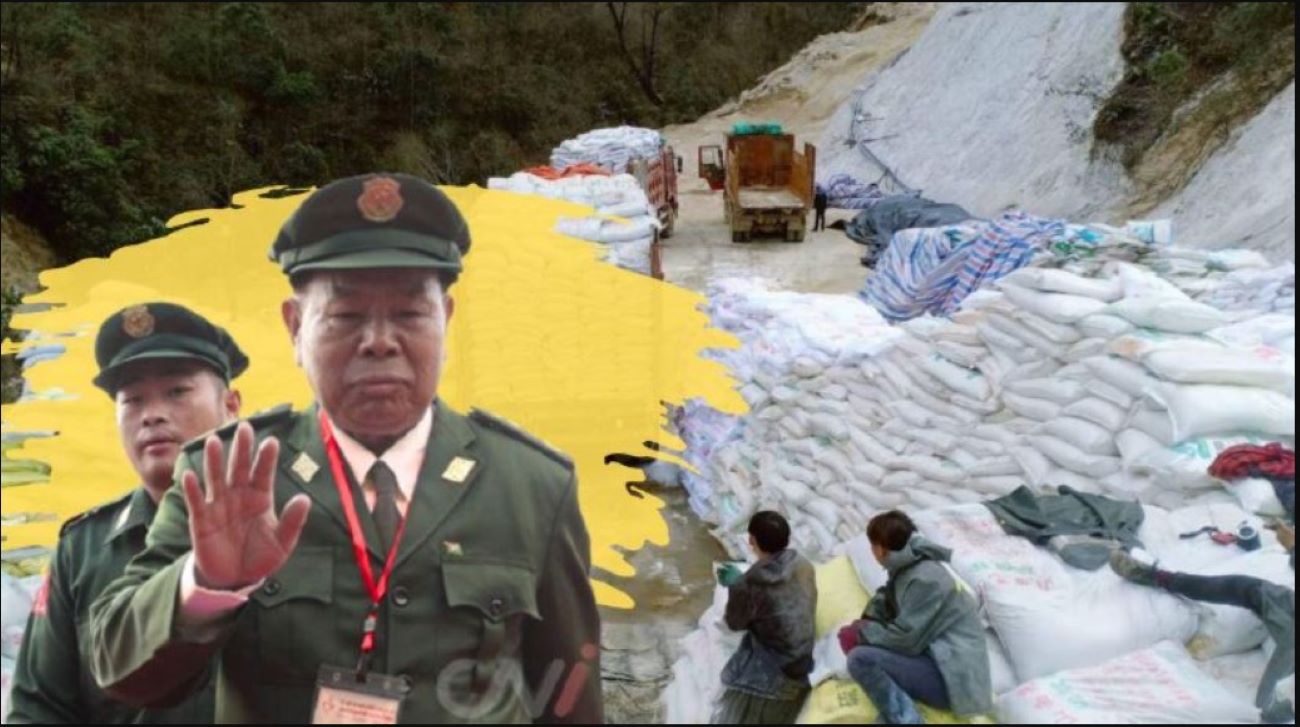
KIA and rare earth minerals seen
She further noted, "What they might not realize is that India and China are currently on quite good terms. They are even considering joint strategic cooperation. Therefore, I don't think India would do anything to trigger a conflict with either the Myanmar government or China. There might be discussions at the corporate level, or perhaps through joint ventures between Indian and Chinese companies, but I doubt it is happening at the state level."
Colonel Naw Bu, the spokesperson for the KIO's central information department, has denied the reports, stating that the news of a secret agreement between the KIA and the Indian government is false. However, political and military observers pointed out that it is not surprising for both parties to deny such claims, as admitting to a secret pact could be seen as a sign of political weakness.
In contrast, the Silicon Valley Times claimed that satellite imagery and cross-border intelligence confirmed the construction of a 365-km road from Vijaynagar in India’s Arunachal Pradesh to rare earth mines in Chipwi, Kachin State. This road, allegedly built without the permission of the Myanmar government or the military, would allow India access to Myanmar’s rare earth resources in exchange for providing weapons, medicine, and other logistics to the KIA. The partnership reportedly also includes a secret plan to build a second strategic road connecting the KIA headquarters in Laiza to Rihkhawdar in Chin State, passing through the Sagaing Region.
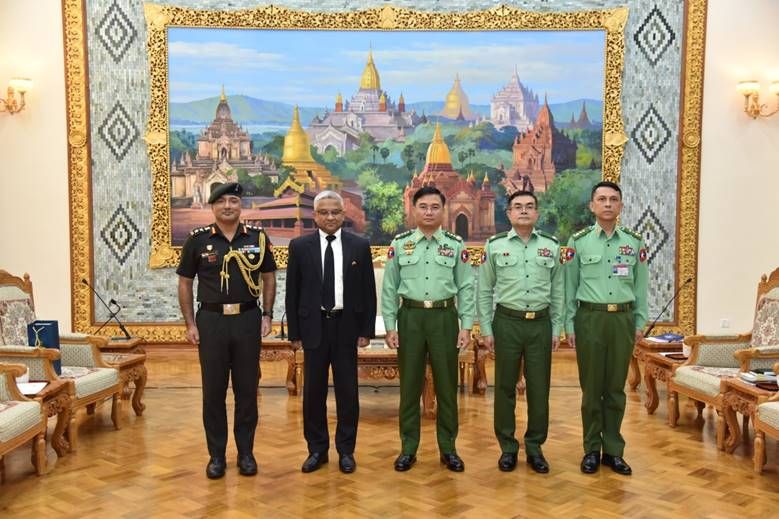
Indian Ambassador and General Kyaw Swar Kin, Chief of the General Staff (Army, Navy and Air)
Colonel Khun Okkar, Chairman of the Pa-O National Liberation Organization (PNLO-NCA/S), told CNI that while there are communications between India and the KIA, a secret agreement remains unconfirmed.
"They do have communications. I'm not sure if a secret agreement has been reached. The KIA has long had a department called 'Rawka I' for Indian affairs and 'Rawka T' for Thailand. It’s possible that negotiations are being conducted through Rawka I," he said.
Following the reports of the secret pact, the Indian Ambassador to Myanmar, Mr. Abhay Thakur, met with General Kyaw Swar Lin, Chief of the General Staff (Army, Navy, and Air), on December 15, 2025. During the meeting, they discussed enhancing cooperation between the two militaries to ensure border security, stability, and the rule of law.

- By CNI
- Category: English Section
- Hits: 229
CNI News
26 December 2025
Political parties and observers are analyzing whether Myanmar’s national situation can truly change as expected if public turnout for the upcoming elections remains low.
The elections are scheduled in three phases: Part (1) on December 28, 2025; Part (2) on January 11, 2026; and Part (3) in the last week of January 2026.
A Vision for a National Unity Government Dr. Aye Maung, Chairman of the Arakan Front Party (AFP), told CNI News that the election results could move the country in a positive direction, suggesting that political parties are more likely to become partners rather than rivals in the post-election landscape.
"Ultimately, even if the USDP (Union Solidarity and Development Party) wins more seats and the military representatives are included, and other parties have fewer seats than them—we believe the next five years will be the initial steps to break the cycle of civil war that has lasted from the early days of independence until now," Dr. Aye Maung said.
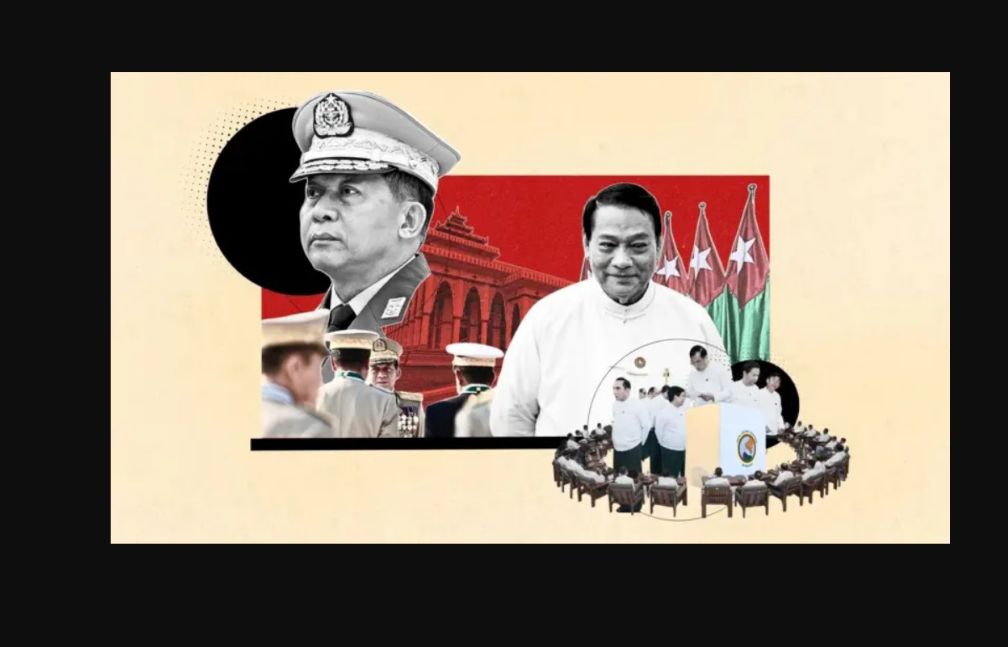
USDP Chairman U Khin Yi, and the State Security and Peace Commission Chairman Senior General Min Aung Hlaing
He expressed belief in a "National Unity Government" (NUG) that includes all stakeholders. "There is political momentum for a government that cannot be formed by a single party or by the military alone. We must form a government representing all sides and ethnic groups to achieve national reconciliation within these five years. I view this as a period of political responsibility assigned to us."
He added that if the public believes this "all-inclusive" political outcome is possible, voter turnout may increase. "Even if the USDP wins the majority of votes, I believe they will move the country forward by forming a collective, unified new government."
Opposing Views on Public Participation Independent candidate Daw Sandar Min argued that the public is no longer as hesitant about voting as they once were.
"Many people abroad don't know the reality on the ground, or they pretend not to. They think what they say from abroad is a big deal and tell people not to vote," she told CNI News. "But the success of this election doesn't depend on them. There isn't just a small number of voters in the country; there are already people ready to vote."
She noted that in her constituency of Latha Township, confusion among voters has diminished as the election date nears. "I don't think voter turnout will be low."
However, legal analysts point out that the 2008 Constitution does not specify a minimum voter turnout for an election to be valid; technically, even a single vote would make the result official.
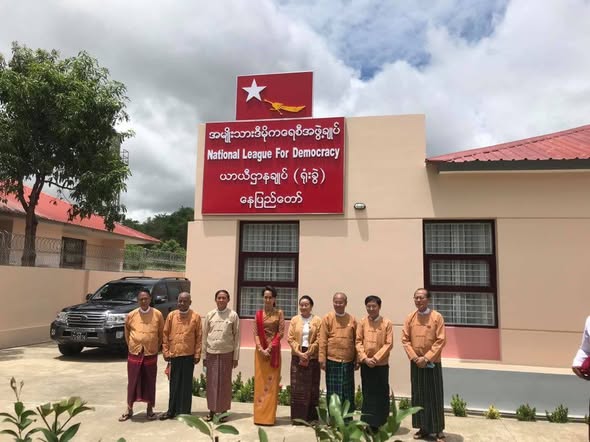
Leaders of the NLD party.
Concerns Over Security and Fairness On the other hand, several Ethnic Armed Organizations (EAOs), the NUG (National Unity Government), and PDF (People's Defense Forces) have issued warnings that they will disrupt the election and take action against those who participate.
Political observers note that while the public understands the importance of the election in changing the current political deadlock, many remain undecided due to:
Safety Concerns: Fear of attacks or repercussions for voting.
Lack of Fairness: Doubts about whether the election will be free and fair.
Absence of Major Parties: The exclusion of popular parties like the National League for Democracy (NLD), the Shan Nationalities League for Democracy (SNLD), and the original Arakan National Party (ANP) has led to perceptions that the USDP is headed for a one-sided victory, dampening public interest.
Observers warn that if voter turnout is low, moderate political parties will struggle to win seats. This could result in a lopsided parliament dominated by the USDP and the military, creating a political landscape without an effective opposition. In such a scenario, they argue, the genuine political change hoped for by the public remains unlikely.

- By CNI
- Category: English Section
- Hits: 198
CNI News
26 December 2025
U Zaw Wai Htet, Secretary of the People’s Pioneer Party (PPP) for the Ayeyarwady Region, told CNI News that the party is facing difficulties and constraints in its organizing efforts due to a lack of local familiarity in the region.
"The main difficulty is that in the 2020 General Election, the PPP was only able to contest in 8 townships within the Ayeyarwady Region. Now, we will be contesting in 26 townships," he said. "As a party, we are still relatively young and are considered a new party within Ayeyarwady. Therefore, organizing is difficult for us. Since we lack local familiarity, we face various challenges and pressures in our attempts to organize."
On August 20, the Union Election Commission (UEC) announced that Part (1) of the Multi-party Democracy General Election, scheduled for December 28, 2025, will be held in 102 townships. Eight townships in the Ayeyarwady Region—Kyonpyaw, Pathein, Maubin, Myaungmya, Kyangin, Myanaung, Labutta, and Hinthada—are included in this first phase.
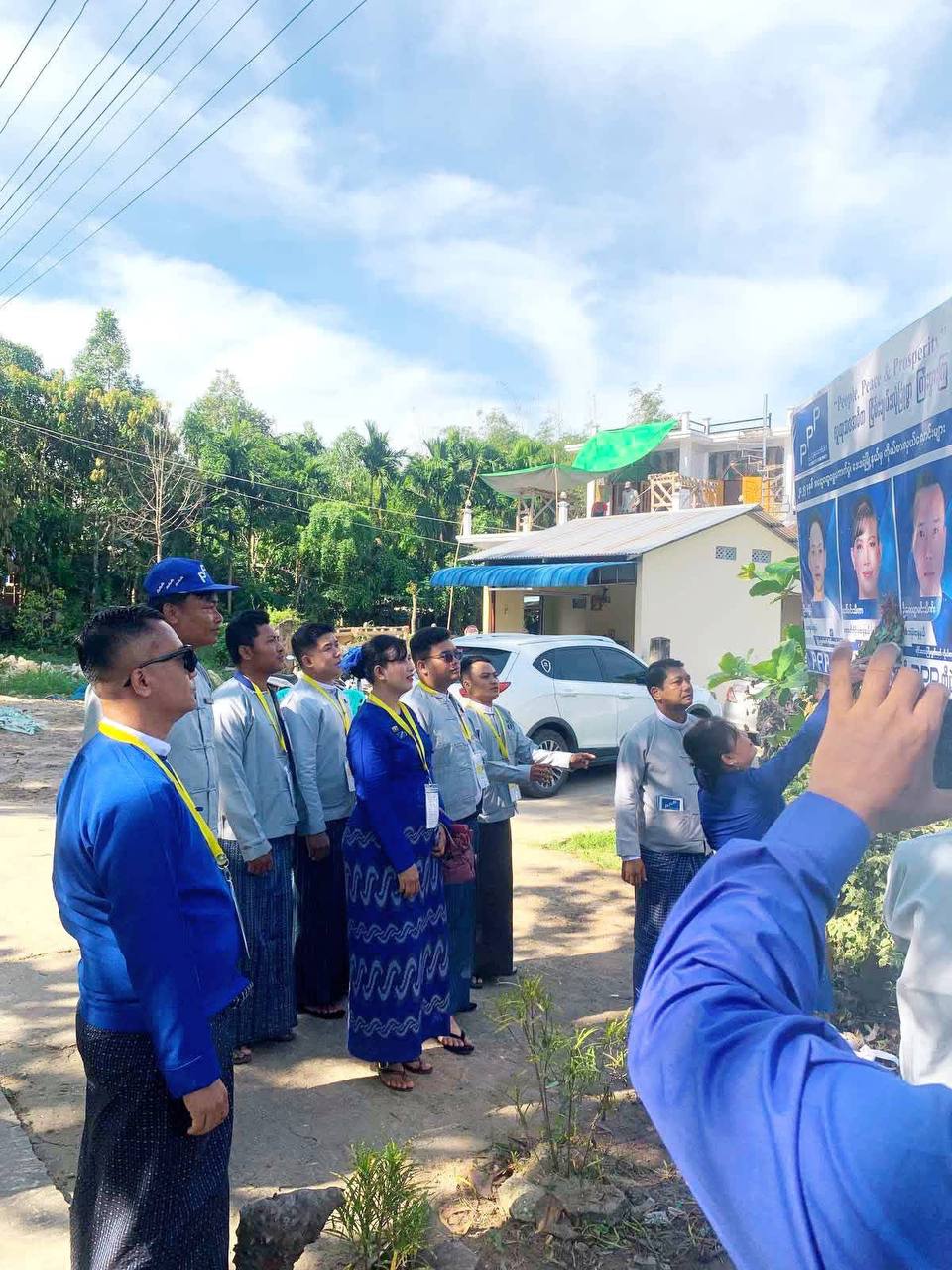
Members of the PPP party in Ayeyarwady Region.
Strict Regulations and Administrative Hurdles U Zaw Wai Htet further explained that the primary challenge for the PPP is the strict regulations imposed by the UEC, which make operations difficult.
"We focus primarily on online outreach. However, in the rural areas of Ayeyarwady, you have to go in person. To do that, we have to obtain recommendations from homeowners and ward administrators to submit to the respective election commissions. This means we essentially have to visit a village twice," he explained.
"First, we have to find a house where we can hold a campaign speech. Once we find a house, we have to get the ward administrator's recommendation and the homeowner’s consent form and submit them to the commission. Only after submitting to the commission can we go back down to the village. These are the kinds of difficulties we face. The voters themselves are accepting; they cooperate with us enthusiastically. The main issue is just the UEC's strict regulations, which make it a bit difficult for our party to operate."
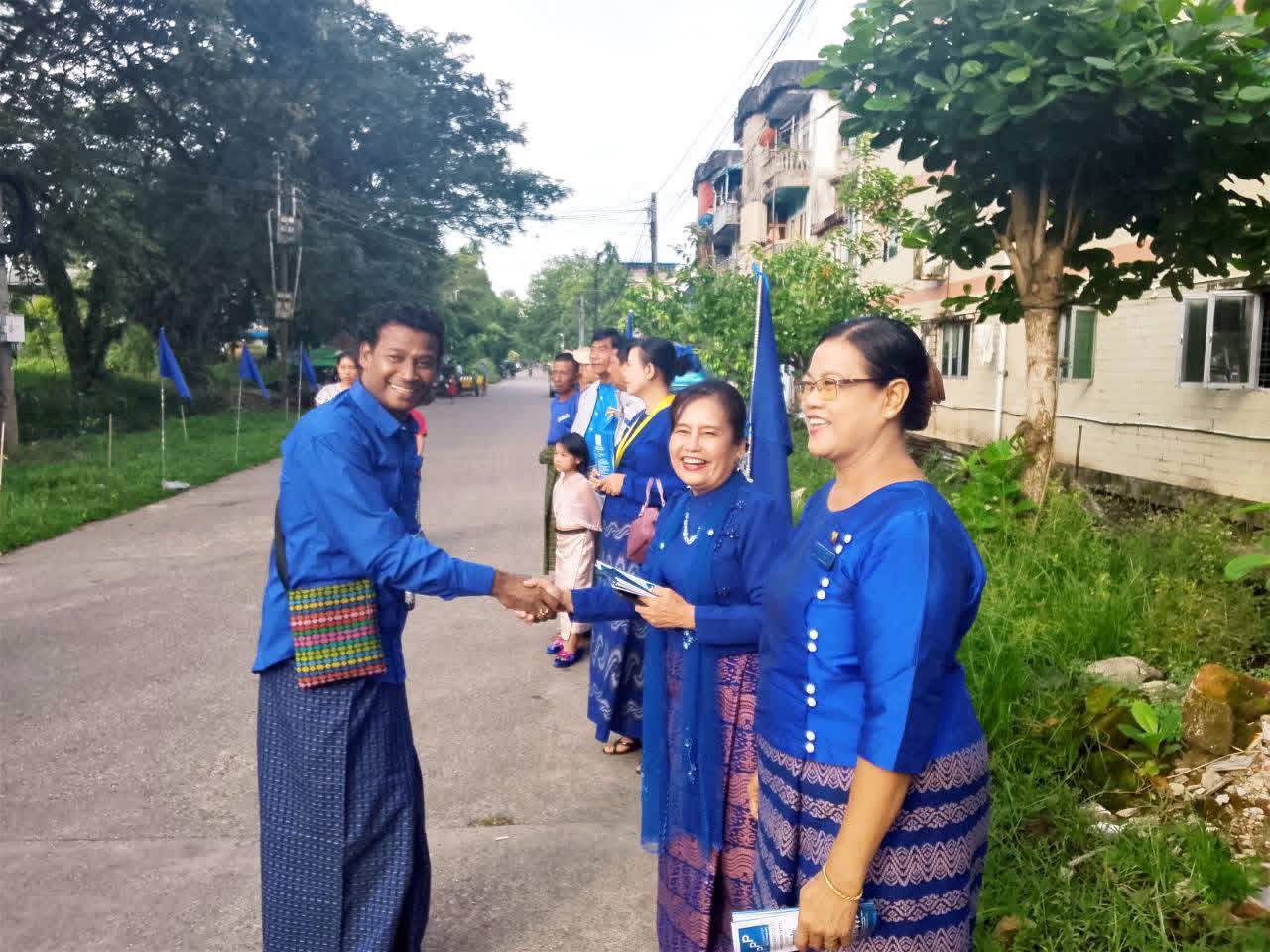
Members of the PPP party in Ayeyarwady Region.
According to the schedule:
Part (1) of the election will be held on December 28, 2025.
Part (2) will be held on January 11, 2026.
Part (3) is slated for the last week of January 2026.
The UEC also announced that elections will not be held in certain areas due to security or logistical reasons. In Part (1), elections would be skipped in the Baw Mi and Ma Gyee Zin village tracts of Pathein Township. Similarly, in Part (2), elections will not take place in the Kyun Lyar Gyi and Thit Phyu village tracts of Thabaung Township.

- By CNI
- Category: English Section
- Hits: 189
CNI News
25 December 2025
Following the shifts in Myanmar’s political landscape after February 1, 2021, various ethnic groups have voiced their respective desires for political status. Consequently, Mon politicians are currently analyzing and discussing the specific political landscape desired by the Mon people.
Mon politicians point out that, unlike some other ethnic groups, the Mon already have a designated State level. However, they emphasize that the current administrative system is not a democracy based on federalism.
Dr. Aung Naing Oo, a veteran Mon politician, told CNI News that the Mon people desire the right to self-determination and the right to choose their own administrative bodies.
"Regarding the political landscape we want to pursue, based on our Mon negotiations, the one point we all fundamentally agree on is the issue of federalism. In other words, we desire a democratic system based on federalism," he said. "Such a system means that the federal units—the States and Regions—must have the right to self-determination and the right to elect their own administrative bodies. That is the path we want to take. Additionally, we must hold substantial legislative powers ourselves. Simply put, we want a genuine federal system."
Historical records show that during the Revolutionary Council era in 1972, the Mawlamyine and Thaton districts of the Tenasserim (Tanintharyi) Division were designated as Tenasserim Division No. 1, while Dawei and Myeik districts were designated as Tenasserim Division No. 2. Later, on January 3, 1974, Tenasserim Division No. 1 was officially re-designated as Mon State.
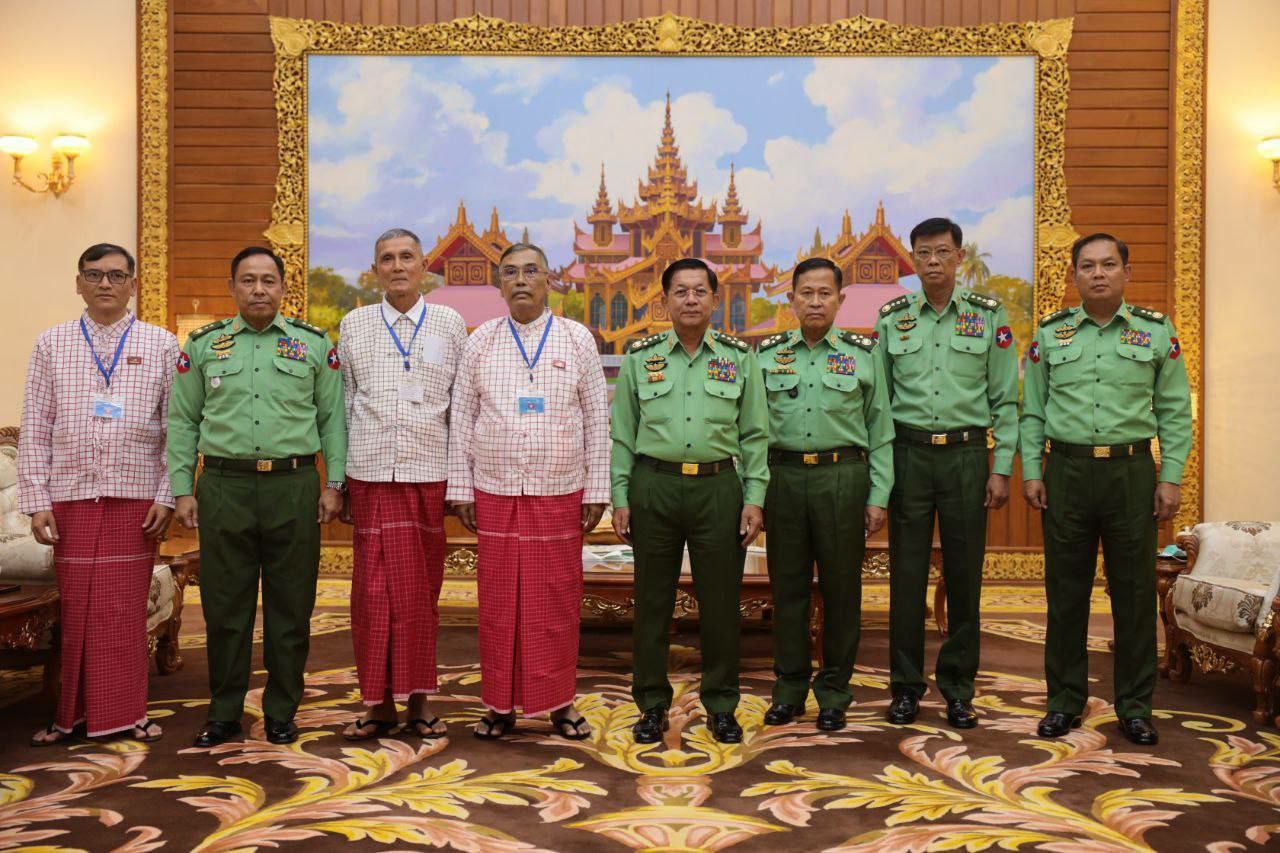
The armed New Mon State Party seen
Currently, the Mon people primarily reside in Mon State, Kayin State, Yangon Region, Mandalay Region, Bago Region, and Tanintharyi Region, and are scattered throughout Myanmar. In Kayin State, they live in certain villages within Kawkareik, Hpa-an, and Kyainseikgyi townships, as well as in Myawaddy and Hlaingbwe townships.
Naing Than Shwe, spokesperson for the Mon Unity Party (MUP), told CNI News that for a Mon State that already exists, it is essential to implement local administration that best aligns with federal standards.
"In this election as well, our main focus is federalism. When we shape federalism, it involves levels of government, particularly the administrative sector," he said. "If we implement local governments according to federal standards, whether you call it self-administration or otherwise, it will be more beneficial for the public. Currently, if we look at the administration, the administrator of a township is not chosen by the local residents but is an official from the General Administration Department (GAD). When a local government cannot govern its own area, how can it develop that area? Locals lack the authority. Therefore, it is crucial to implement local administration effectively; this is consistent with federal standards."
Following the 2021 political changes, a group called the New Mon State Party - Anti-Dictatorship (NMSP-AD) broke away from the New Mon State Party (NMSP).
Subsequently, four Mon armed groups emerged: the Mon Liberation Army (MLA), the Mon National Liberation Army-Anti Dictatorship (MNLA-AD), the Mon State Defense Force (MSDF), and the Mon State Revolutionary Force (MSRF). These four groups have formed the "Mon Army" to conduct military operations.
While the Karen National Union (KNU) and PDFs under the NUG are also active in the region, Mon State currently remains relatively more stable compared to other states.

- By CNI
- Category: English Section
- Hits: 341
CNI News
25 December 2025
Senior General Min Aung Hlaing, Chairman of the State Security and Peace Commission, has a high percentage chance of becoming the country’s president in the political landscape that will emerge after the election, said Dr. Aye Maung, Chairman of the Arakan Front Party (AFP), speaking to CNI News.
He said that Min Aung Hlaing is the most capable individual who can continue and carry forward everything implemented during the past five-year period, given his extensive experience in Myanmar politics.
“Senior General Min Aung Hlaing has quite a high percentage when it comes to becoming president. His experience goes back to the time when he served as Commander-in-Chief under President U Thein Sein’s administration. After Senior General Than Shwe, he was a long-serving Commander-in-Chief. He has passed through two government terms. Personally, he has now governed the country up to the current five-year term. So when we consider how he will lead a future government, we need to think in line with the Constitution. First, if Senior General Min Aung Hlaing takes up the position of president, will he hand over the Commander-in-Chief post to someone already designated, and then serve as a civilian president? Second, will he appoint a president of his choosing while he himself, through constitutional powers, remains behind the scenes taking charge of national security and defense through mechanisms such as the Defense Council? When we analyze things like his agriculture-based development efforts to boost production and his work to promote education, he appears to be the individual most capable of carrying forward everything implemented during the past five years into the next five.”, he said.
Regarding the political situation that is yet to unfold after the election, it is difficult to predict the form it will take, said Colonel Khun Okkar, Chairman of the Pa-O National Liberation Organization (PNLO-NCA/S), which is a signatory to the NCA.

Senior General Min Aung Hlaing seen meeting with political parties
“Nothing is fixed yet in politics, and nothing is impossible. That’s why it’s hard to predict what form will emerge. If Senior General Min Aung Hlaing becomes president, he would need to step down from the military and become a civilian, like former presidents U Thein Sein, U Win Myint, and U Htin Kyaw. Only as a civilian can he become a president recognized internationally. So if he retires from the military and transfers authority, what form will that take? We need to think about that carefully. Also, electing and confirming the president is done by parliament, especially the Pyithu Hluttaw (Lower House) under the 2008 Constitution. It plays a major role. The party that wins a majority in the Lower House will nominate a presidential candidate. There will be three candidates: one nominated by the Amyotha Hluttaw (Upper House), one by the Pyithu Hluttaw, and one by the military. Parliament then approves one of the three as president. In that situation, power struggles may arise. How the distribution of power will balance out and take shape is difficult for us to predict right now. At present, there are many possibilities and many options.”, he said.
Currently, various analyses are emerging regarding who will lead the government that will come after the election. Political observers believe that Senior General Min Aung Hlaing still maintains control over the three branches of power in the current situation.
Phase (1) of the election in Myanmar will be held on December 28, 2025. Phase (2) will take place on January 11, 2026, and Phase (3) will be held in the final week of January 2026.
Senior General Min Aung Hlaing has stated that he will transfer state power to the government that emerges following the election.
However, analysts in military and political affairs point out that if a civilian government emerging after the election is unable to properly administer the country amid ongoing armed conflicts, a situation could arise once again in which power must be returned to the military.

- By CNI
- Category: English Section
- Hits: 146
CNI News
25 December 2025
Sai Aik Pao, Chairman of the Shan and Nationalities Democratic Party (SNDP), told CNI News that he believes there will not be election fraud in the upcoming 2025 general election beginning on December 28, unlike the alleged irregularities in the 2020 general election.
On February 1, 2021, the Myanmar military (Tatmadaw) seized state power, claiming that the NLD government attempted to form a government without resolving disputes regarding the 2020 general election voter lists.
Following the takeover, a state of emergency was declared and the military has governed the country up to the present day, with the first phase of the new general election scheduled to begin on December 28, 2025.
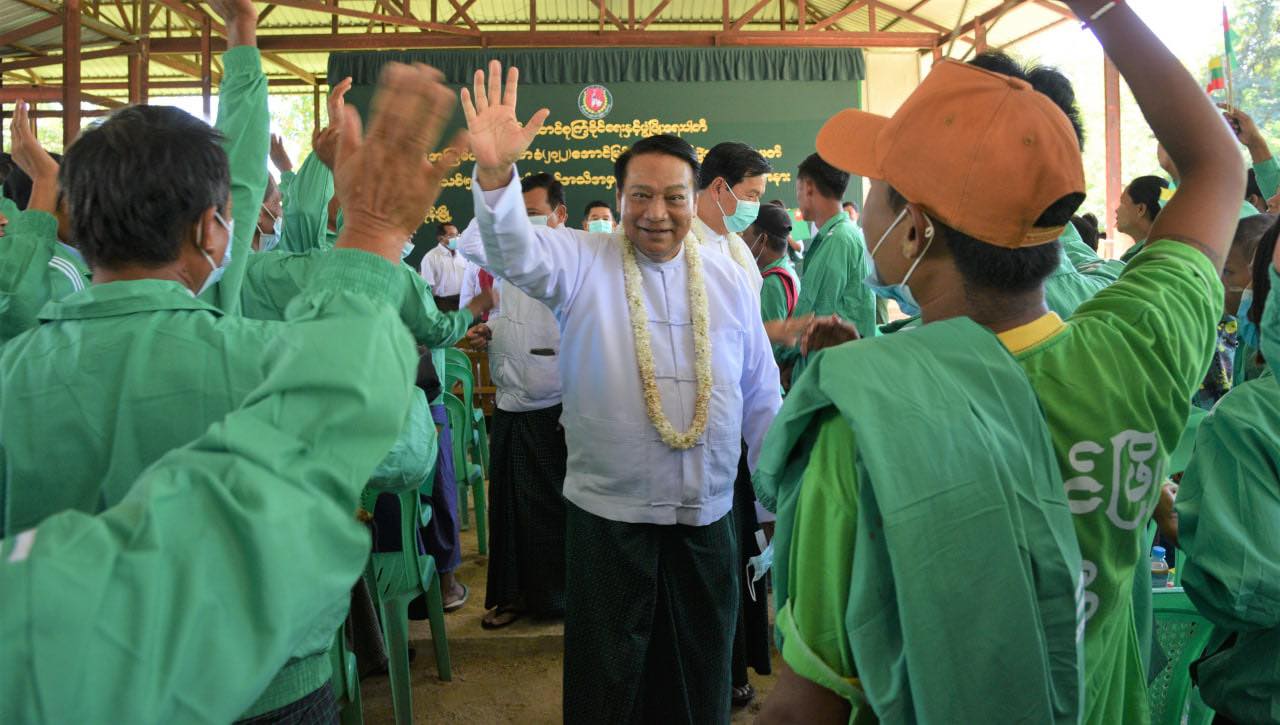
USDP Chairman U Khin Yi
Sai Aik Pao stated that the Union Solidarity and Development Party (USDP) is expected to win first place due to its long-standing presence and strong membership, while the Shan and Nationalities Democratic Party could potentially secure second place.
“The USDP is a big party — no one can really compete with it. It has a lot of loyal party members. Our party is new, just two years old. The USDP has hundreds of thousands of members. No matter what happens, they’ll be number one. Compared to others, they have more members. And they have many campaign signboards. Our people have strong internal unity — we hand out pamphlets in the villages, and everyone wants them, reads them, talks about them, and says they will support Kyarr Phyu (SNDP). For that reason, we have a chance to be second. We believe the election will be free and fair. The Acting President has repeatedly said that the election will truly be free and fair. Since they claimed fraud in 2020, we believe this time such things will not happen again,” he said.
Six political parties will compete nationwide in the 2025 election: the Union Solidarity and Development Party (USDP), the National Unity Party, the Myanmar Farmers Development Party, the People’s Pioneer Party, the People’s Party, and the Shan and Nationalities Democratic Party (SNDP).
Armed resistance groups and the National Unity Government (NUG) have dismissed the upcoming military-led election as a “sham election,” while observers have noted low public interest among ordinary citizens.
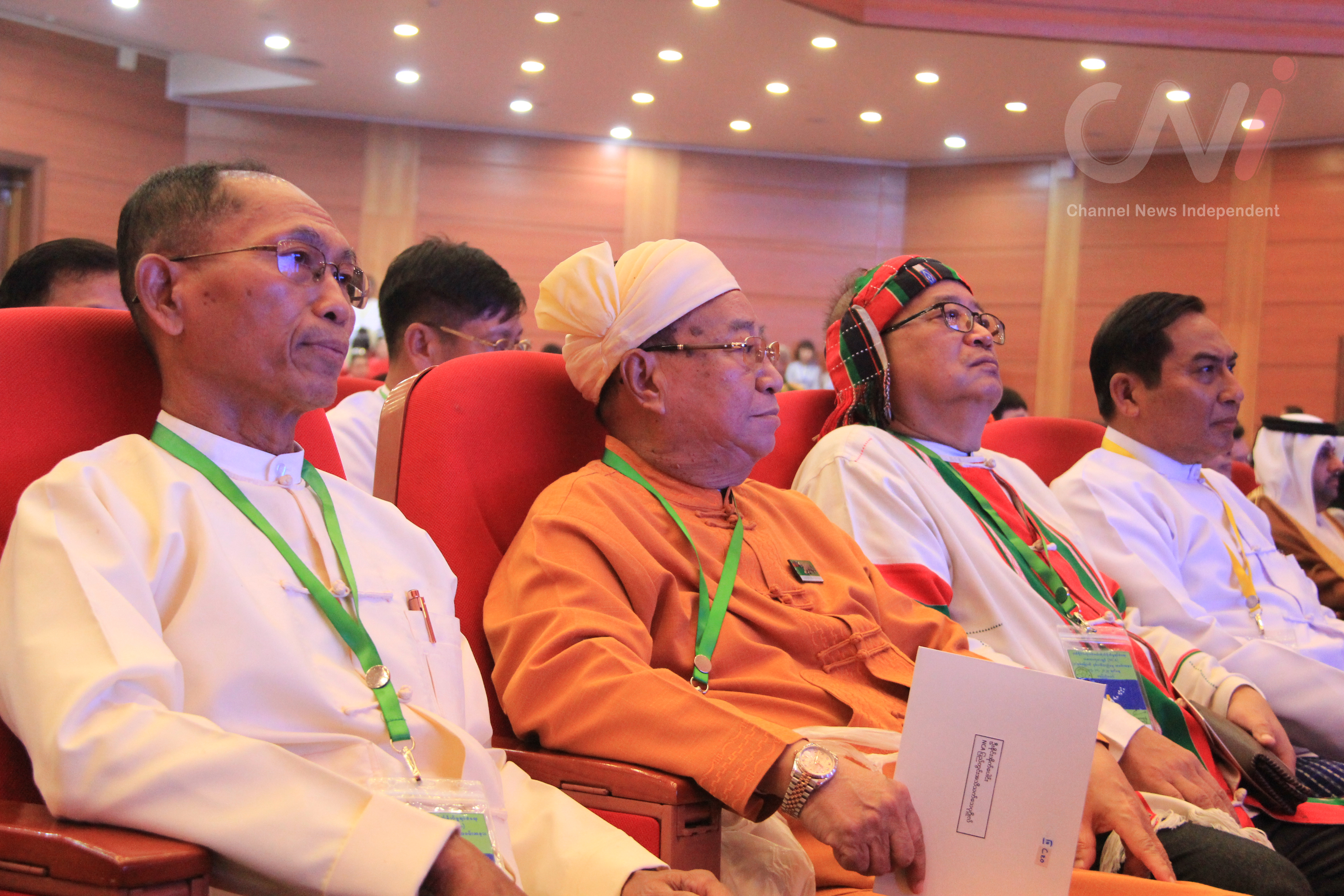
U Ko Ko Gyi, Sai Aik Pao, and other political party officials
Political analyst U Htet Aung Kyaw told CNI News that if voter turnout is high, other parties will gain seats more evenly, but if voter turnout is low, the USDP is likely to win a majority.
“If the public is not interested and voter turnout is low, the USDP will likely win more seats. Based on previous patterns in 2010 and 2015, roughly a solid 20 percent of voters consistently vote for the USDP. If the public doesn’t vote, the USDP could win most constituencies. But if people go out and vote, other parties and individual candidates will receive a balanced share of votes. If voter turnout is high, the results will be more equal. But if turnout is low, the USDP could win a majority. So we must watch closely,” he said.
The election will be held in three phases, with Phase 1 taking place in 102 townships on December 28.
In the upcoming multi-party democratic general election, the USDP — whose members include individuals affiliated with the military — will field more than 1,000 candidates.

- By CNI
- Category: English Section
- Hits: 168
CNI News
25 December 2025
Democracy should not only be spoken about in a mobilizing and persuasive manner, but also practiced in reality, said Colonel Khun Okkar, Chairman of the Pa-O National Liberation Organization that signed the NCA (PNLO-NCA/S), in an interview with CNI News.
He stated: “During President U Thein Sein’s five-year term, we saw that matters were managed and maintained to a certain extent. Later, during Daw Suu’s five-year term, we also saw that things were conducted with some balance and restraint. But these things only lasted ten years. After ten years, the essence of democracy faded away. Now the current leaders are loudly proclaiming that they will revive and re-cultivate multi-party democracy. However, the true essence of democracy, the essence of a multi-party system, and what is called civilian supremacy—the fundamental value of democratic nations—must be meaningfully realized. So rather than giving speeches that merely sound good and focus on persuasion, it is necessary to put democracy into practice. That is what I believe,” he said.
On December 10, 2025, Senior General Min Aung Hlaing said during the graduation parade of Defense Services Officer Training Course No. 26 that the survival of a multi-party democratic system is crucial for the emergence of a Union based on democracy and federalism.
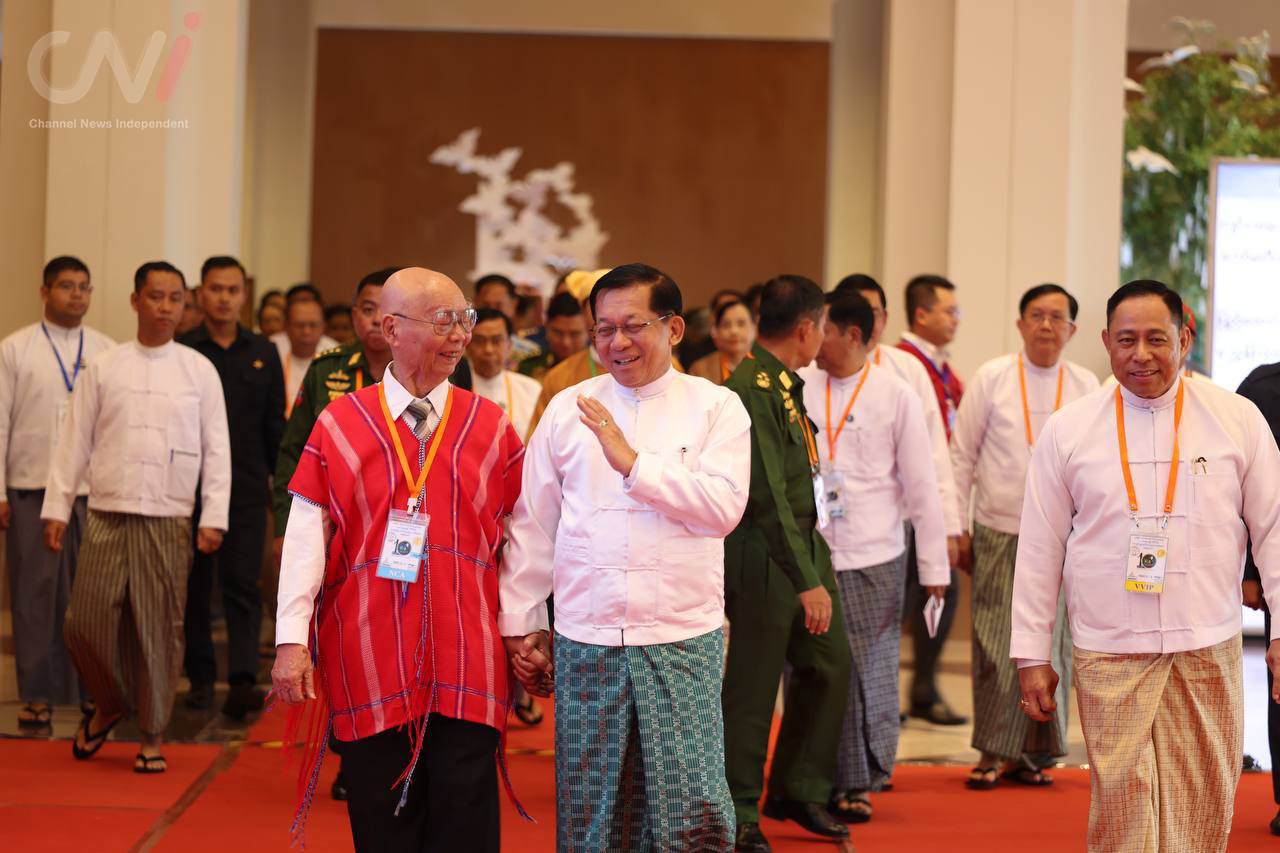
He stated that in building a Union grounded in democracy and federalism, Myanmar should not simply copy and apply the systems of other countries, but develop a democratic and federal system that is suitable for the country itself.
Although the current leaders who govern Myanmar have said they will build a Union based on democracy and federalism, U Khin Yi, Chairman of the Union Solidarity and Development Party (USDP), said during a campaign rally that any new government unable to closely cooperate with the Tatmadaw would fall from power soon after taking office.
Colonel Khun Okkar, Chairman of the PNLO-NCA/S, told CNI News that such a statement contradicts the true nature of democracy and that Myanmar’s political system has been flawed since the time of Prime Minister U Nu.
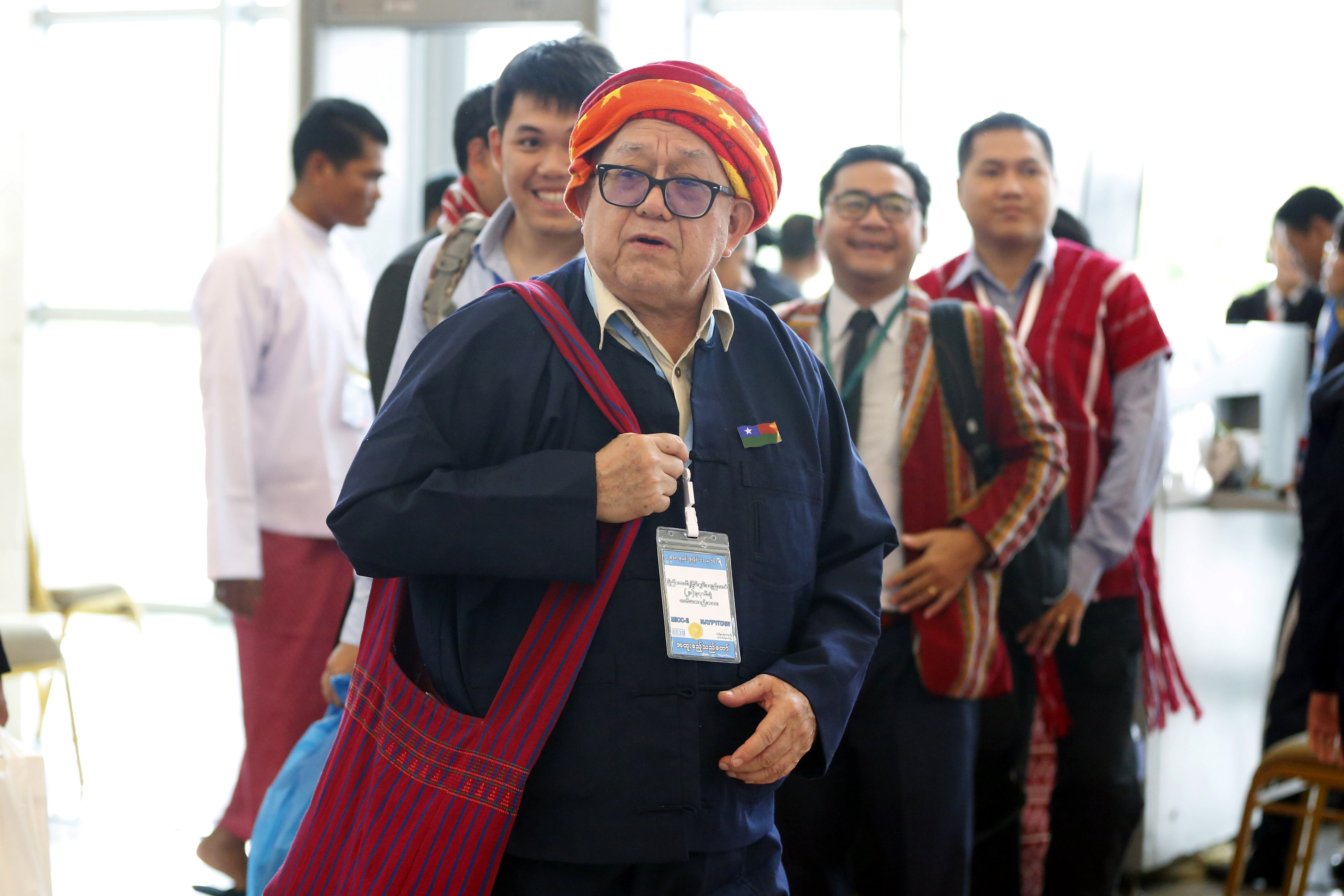
He stated: “Myanmar's political system has been wrong since U Nu’s time—since after the Panglong Agreement was signed. The Agreement was signed, but its terms were not implemented. After General Aung San passed away, a unitary system was established under the name of the Union. Within that system, U Nu proclaimed that the Anti-Fascist People’s Freedom League (AFPFL) would rule for 40 years, but cracks appeared within about 14 years. Sides emerged—those who cooperated with the military and those who did not. From then on, political leaders who lacked sincerity did not establish the true essence of democracy, but instead created a unitary system under which one group ruled over all ethnicities. As a result, beginning from General Ne Win, the military entered into politics and gained political power—something that has continued for more than 50 years up to the present day. Some individuals still want to maintain this historical background, while others think it is no longer necessary. But those two sides have not yet met openly and genuinely discuss solutions. Because that has not yet happened, we remain trapped in this stalemate. From what I hear in U Khin Yi’s speech, it implies that regardless of who forms the government, the military will retain control. Under those circumstances, I don’t think we will see any major positive change. But ultimately, it depends on the sincerity, vision, and mindset of the leaders. That is what will determine the final outcome in the future,” he said.
Senior General Min Aung Hlaing also said that since the implementation of elections is essential for the survival of the multi-party democratic system, the eagerly anticipated nationwide general election will begin on December 28.
In Myanmar, Election Phase (1) will be held on December 28, 2025, followed by Phase (2) on January 11, 2026, and Phase (3) in the final week of January 2026.
He stated that power will be transferred to the political party that wins the election and that the military will only continue to carry out national defense duties.



